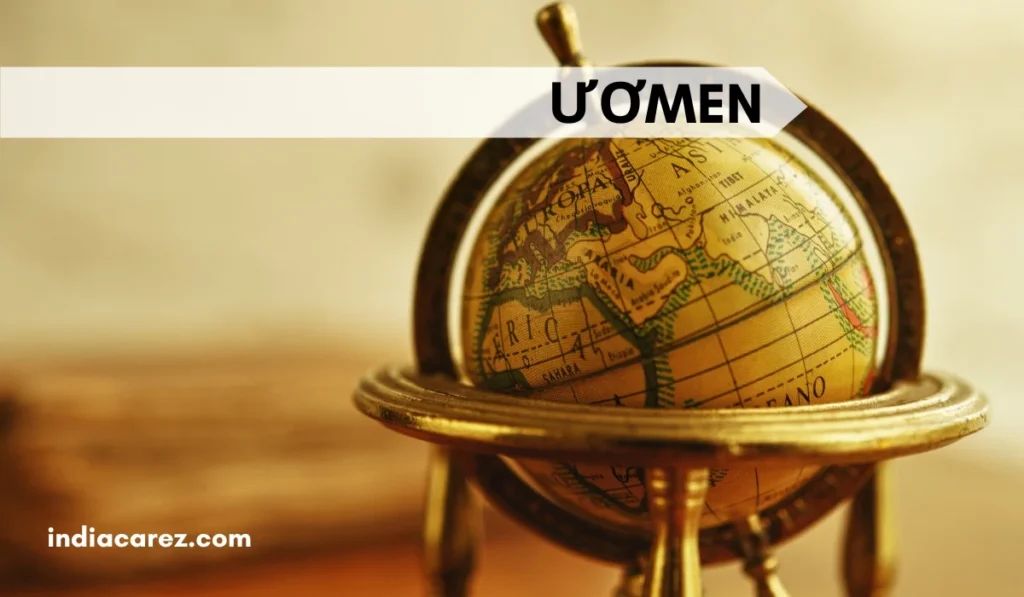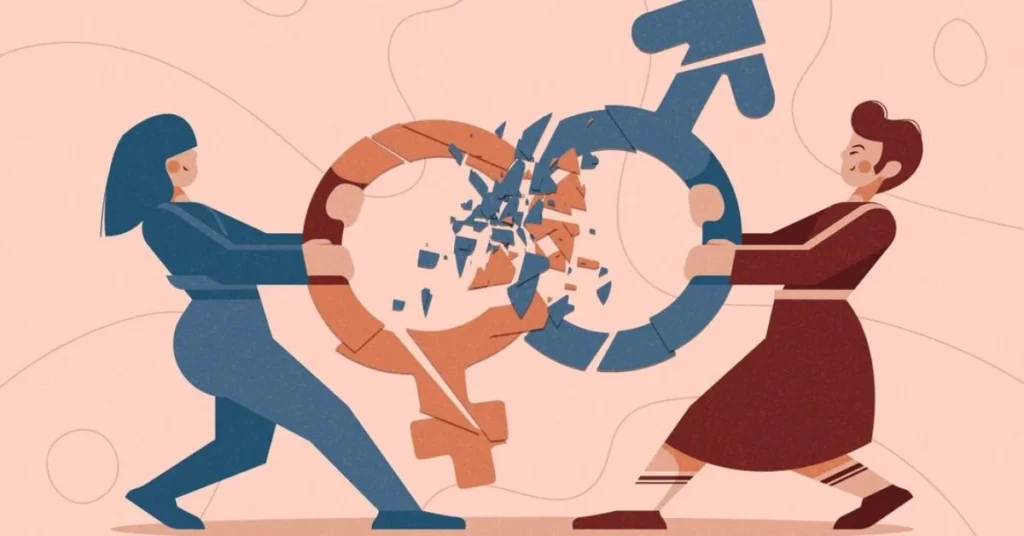In the modern world, where conversations concerning inclusivity, empowerment, and gender equality are common, the term ươmen takes on a sensitive and complex meaning. It embodies traits and attributes necessary for the holistic flourishing of humankind, transcending gender barriers and capturing not only the conventional ideas of femininity.
The term’s origin and etymology
The term ươmen originates from ancient cultures and philosophies, especially from Eastern traditions where it represents a harmonic equilibrium between complementary energies. The word “omen,” which denotes gender or femininity, and “̨,” which means essence or soul, combine to form the word itself. But its meaning goes beyond dichotomies of gender and includes characteristics like empathy, fortitude, and caring abilities.
Evolution And Historical Importance
The notion of “ư̡men” has undergone numerous modifications and meanings over time. It was frequently connected to goddess figures in ancient cultures, which stood for fertility, knowledge, and defending forces. The concept of “̨,̥men” changed along with societies, blending with cultural customs, religious beliefs, and social mores.
Cultural Backgrounds and Meanings
Diverse cultural viewpoints on “ƨ̥men” are indicative of the multiplicity of human experiences and ideals. It may be suppressed or idealised to fit specific stereotypes in some societies, where it is admired as a symbol of grace and strength. Gaining an appreciation of these cultural subtleties is essential to realising what “ƨ,̡men” really mean.
Relevance And Application In The Modern Era
Discussions concerning women’s rights and gender equality in the modern era have elevated the idea of “ʨ̥men.” It acts as a reminder that all people, regardless of gender identity, have inherent worth and potential. Accepting and appreciating the distinct viewpoints and contributions that every individual offers to the table is a key component of embracing ươmen.
The attributes of ươmen
The idea ofươmen is based on a number of characteristics that include both more general human virtues and traditional feminine traits. These include, among other things, empathy, compassion, fortitude, creativity, intuition, and leadership. People who possess these qualities are better able to handle life’s obstacles with grace and sincerity.
Instances Of ươmen In Art And Literature
The essence of ươmen has long been expressed and honoured through literature and art. There are innumerable representations of strong, resilient, and empowered people that embodie the spirit of “̰,̡men” in both modern and historic literary works. These illustrations provide motivation and support for the idea’s ongoing applicability.

Gender and ươmen
Even thoughươmen is frequently connected to femininity, it’s crucial to understand that gender is not binary and that people of different genders can possess its core qualities. “̰,̡men” transcends conventional gender roles and stands for a range of characteristics that are part of human nature regardless of gender identity.
Problems And Reactions Regarding The Idea
The idea of “ư̥men,” despite its beneficial implications, is not without difficulties and detractors. Some contend that it ignores the complexity of gender dynamics in contemporary culture or reinforces prejudices. Its emphasis on some traits over others may make others feel left out or marginalised.
Empowerment with “Ʃ̥men”
That being said, “ư̡men” can also inspire and empower people individually as well as in groups. People can develop a sense of agency, self-worth, and resilience by accepting and embodying its essence; this can result in good personal and social transformation.
Education’s Function in Comprehending “Ʃ̥men”
The function of education is crucial in promoting a more profound comprehension and admiration of the notion of “̨̥men.” Teachers may enable the next generation of activists for social justice and stereotype-busting by incorporating conversations on gender equality, diversity, and inclusion into their curricula and encouraging critical thinking and empathy.
Encouraging Diversity And Inclusivity
It takes a community’s combined efforts to eliminate structural obstacles and advance inclusivity and diversity in order to create a more ươmen society. To do this, it is necessary to question established conventions and preconceptions, promote equitable opportunity, and give voice to underrepresented groups in all spheres of society.
Cross-sectionality Moreover, ươmen
The concept of intersectionality recognises that people with intersecting identities—such as race, class, sexual orientation, and disability—experience both privilege and various types of oppression. Addressing the varied needs and experiences of everyone, especially the marginalised or underrepresented, requires an understanding of the intersectional character of “̨,̥men.”
Creating A Society With Moreươmen
In the end, creating a society with more ươmen will require a communal dedication to justice, equality, and human dignity. It entails opposing the status quo power structures, pushing for legislative changes, and promoting inclusive, empathetic, and respectful cultures in all spheres of society.
Final Thought: Accepting The True Nature Of “Ư̡men” In Our Lives
To sum up, the notion of “ƨ̥men” encompasses a comprehensive and all-encompassing comprehension of human nature, surpassing gender classifications and stereotypes. It advocates for a society that is more sympathetic, fair, and compassionate while celebrating the potential and intrinsic worth that each and every person possesses. Through embracing the true meaning of “̰,̥men” in our daily lives, we may create a future where everyone can live in justice, harmony, and sustainability.
FAQs
Where did the phrase “ư̡men” come from?
The name ươmen comes from old philosophy and civilizations, especially Eastern customs, where it represents a harmonious union of opposing elements.
What role does gender equality play in ươmen?
Regardless of gender identity, “̰,̥men” transcends conventional gender norms and embraces traits and values necessary for human flourishing.
Is there any opposition to the idea of ươmen?
Indeed, other objections include the way it perpetuates stereotypes and ignores the nuanced aspects of gender interactions in contemporary culture.
Is it possible for people of any gender to truly represent ươmen?
Yes, “̨,̥men” refers to a range of attributes that are present in all people and can be accessed by people of any gender.
What steps can we take to make society more “̰,̥men”?
Building a more “,men” society requires promoting inclusion, diversity, and intersectionality; it also requires fighting stereotypes and pushing for policy reforms.




